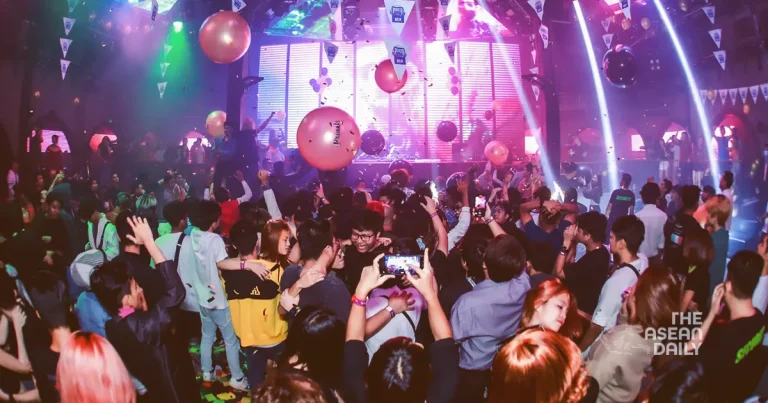24-6-2024 (YANGON) As the military-mandated curfew approached close to midnight in Yangon, a stark contrast emerged between the city’s vibrant nightlife and the war-torn reality gripping much of Myanmar. While youth thronged a nightclub, dancing to thumping beats amidst a haze of smoke, the borderlands of Rakhine, Kachin, and Shan states witnessed the military defending a shrinking territory against ethnic armed groups and resistance forces.
In the economic capital, new eateries, nightspots, and even an art gallery have opened, defying the gloom brought on by the 2021 military coup that ousted Myanmar’s civilian government. Yet, the exodus of talent and labor has been exacerbated by the military’s bid to conscript civilians to shore up its depleted ranks.
The crisis has forced some three million people to flee their homes, and poverty now afflicts one-third of Myanmar’s 55 million population – a level unseen since 2015. Inflation in the year to March 2024 reached a staggering 26.5 percent, according to the World Bank.
In Sanchaung, a vibrant neighborhood in north-central Yangon, diners crammed into whitewashed cafes offering indulgent fare, while nightspots and restaurants hosted sell-out Pride parties. At People’s Park, lovers canoodled on weathered seats, and claw machines did a roaring trade as the creaky roller-coaster thrilled the occasional teenager.
Myanmar’s moneyed and military-linked classes have long been able to insulate themselves from larger economic pressures, even during earlier periods of military rule that drew Western sanctions. However, signs of the deepening crisis are visible in the affluent bubble of Yangon.
There are few tourists on the streets today, a stark contrast from the 4.3 million visitors Myanmar welcomed in 2019 before the COVID-19 pandemic. In 2023, the number shrank to 1.28 million, according to the regime’s statistics.
Many countries have warned their citizens against visiting Myanmar since the coup. Singapore’s Ministry of Foreign Affairs advises Singaporeans to defer all travel to the country, while the Australian government warns of the risk of “arbitrary detention” and violence.
Staff at a major hotel in the city center have advised guests to stay indoors after 8 pm, and nearby police stations and government buildings are surrounded by barbed wire barricades to deter insurgent attacks. Soldiers and police officers stand guard outside premises with close ties to the military, while beggars approach cars waiting at traffic junctions.
Shunned by many countries after the coup, the junta has leaned into existing ties with Russia for political, economic, and military support, bringing a steady stream of Russian delegations seeking investment opportunities in Myanmar.
The World Bank estimates that Myanmar’s gross domestic product eked out just 1 percent growth in the year that ended in March 2024 and is likely to do the same for the subsequent year. As a symbol of the tough economic fortunes, the towering Sule Shangri-La hotel in downtown Yangon has remained closed since the pandemic.
Bar owners in the city report earning just one-third of their pre-pandemic income, citing the curfew and security concerns that keep customers away at night. Recruitment challenges are also prevalent, with young people fleeing the country to avoid conscription.
A 26-year-old content creator, who fled to Bangkok with his brother in March, said his parents now support their expenses abroad, recognizing the worsening situation in Myanmar. The snaking queue of cars along Pyay Road, waiting to be inspected by soldiers before being allowed to proceed to Yangon International Airport, serves as a constant reminder of the dangers that await those defying the regime.
Business owners in Yangon tread warily, aware of the strict regulations imposed by the junta. Some decline interviews, fearing repercussions for mentioning politics.




